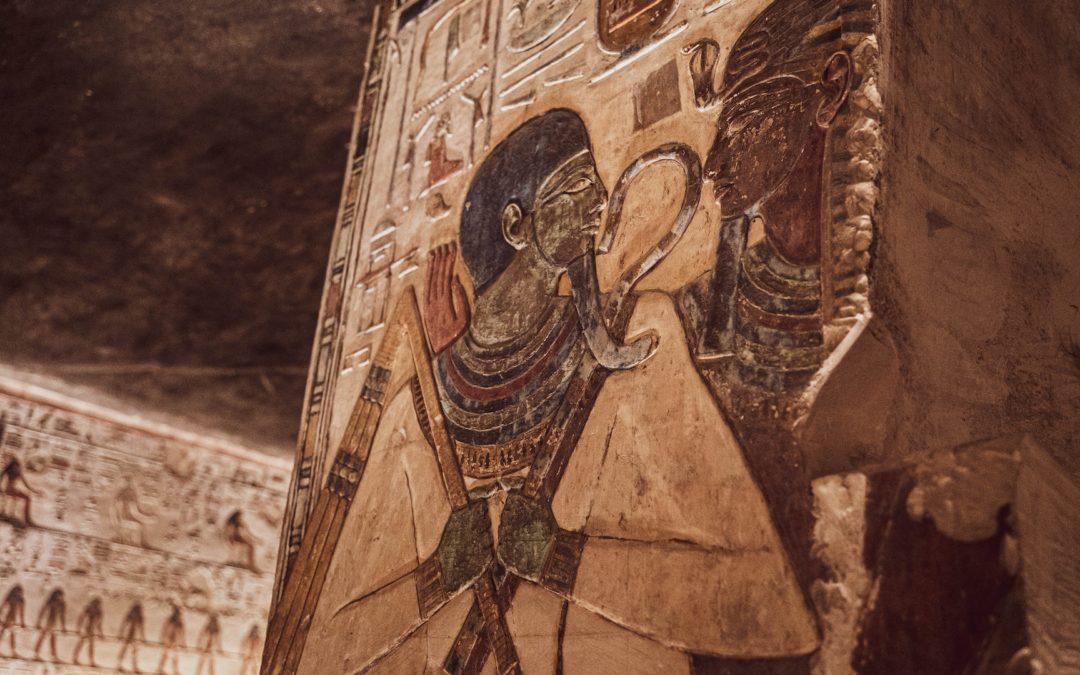Some of the most important things in life are things we can’t see or touch. Love, time, freedom, and happiness are not physical objects, yet they shape our thoughts, decisions, and emotions every day. These are examples of abstract things—ideas, concepts, and emotions that exist in our minds but have a real impact on how we live.
Abstract things are everywhere. We feel emotions like joy and fear, rely on concepts like justice and knowledge, and build relationships based on trust and loyalty. Even though we cannot hold them in our hands, they influence everything from personal choices to entire societies.
In this article, we will explore 80 important abstract things, covering emotions, values, principles, and more. Understanding these concepts can help us see the deeper meaning behind everyday experiences and the way we connect with the world.
What Are Abstract Things?
Abstract things are concepts, ideas, and emotions that exist in our minds but cannot be physically touched or seen. They include feelings like love and fear, principles like justice and freedom, and intangible qualities like time and knowledge. Unlike physical objects, abstract things do not have a concrete form, yet they play a crucial role in human life. They shape our thoughts, guide our decisions, and influence our relationships and societies.
Abstract things can be personal, like emotions and thoughts, or universal, like ethics and truth. They define human experiences, inspire creativity, and help us understand complex ideas beyond the material world. Whether in philosophy, psychology, or everyday life, abstract concepts shape our perception of reality and drive progress in knowledge, art, and culture.
The Best Examples of Abstract Things
From love and time to justice and imagination, these concepts shape human experiences, relationships, and society. Below is a list of 80 important abstract things, each with a brief explanation of its meaning and significance.
Love – A deep emotional connection and affection.
Time – The ongoing flow of past, present, and future.
Freedom – The ability to act and think without restriction.
Justice – Fairness in laws, decisions, and society.
Happiness – A feeling of joy and contentment.
Truth – What is real, honest, and accurate.
Knowledge – Understanding gained through learning and experience.
Wisdom – The ability to make good decisions based on experience.
Beauty – The quality that makes things pleasing to the senses.
Peace – A state of calm and absence of conflict.
Consciousness – Awareness of thoughts, feelings, and surroundings.
Hope – Belief that things will get better.
Courage – Strength to face fear or difficulty.
Trust – Confidence in someone’s reliability and honesty.
Honor – Living with strong moral principles.
Loyalty – Standing by someone or something no matter what.
Integrity – Staying true to your values and being honest.
Patience – The ability to stay calm while waiting.
Fear – A strong emotion triggered by danger or uncertainty.
Hate – Intense dislike or hostility toward something or someone.
Friendship – A close, meaningful bond between people.
Creativity – The power to come up with new and original ideas.
Intelligence – The ability to think, learn, and solve problems.
Imagination – The mind’s ability to picture things that don’t exist yet.
Inspiration – A sudden idea or motivation to create or do something.
Emotion – Feelings like happiness, sadness, anger, and love.
Pain – Physical or emotional suffering.
Pleasure – Enjoyment and satisfaction from experiences.
Desire – A strong feeling of wanting something.
Faith – Trust or belief in something without proof.
Luck – When good things happen by chance.
Fate – The idea that events are meant to happen.
Destiny – A predetermined course of events in life.
Goodness – Doing what is right and kind.
Evil – The presence of cruelty, harm, and wrongdoing.
Morality – Knowing the difference between right and wrong.
Ethics – Principles that guide behavior and choices.
Charity – Helping others without expecting anything in return.
Empathy – Understanding and sharing someone else’s feelings.
Kindness – Treating others with warmth and compassion.
Grief – Deep sadness after loss.
Jealousy – The feeling of wanting what someone else has.
Pride – A sense of self-respect and achievement.
Shame – Feeling bad about something you’ve done.
Guilt – Regret for doing something wrong.
Suffering – Experiencing deep pain or hardship.
Satisfaction – Feeling content after reaching a goal.
Enlightenment – A deep understanding of life and truth.
Intuition – Knowing something without needing proof.
Sensation – A physical or emotional feeling.
Thought – An idea or opinion in your mind.
Idea – A new concept or plan that comes to mind.
Memory – Recalling past experiences and events.
Awareness – Being conscious of something around you.
Perspective – The way you see and understand things.
Perception – How your brain interprets the world.
Experience – What you gain from living and learning.
Spirituality – A connection to something greater than yourself.
Divinity – The quality of being related to a god or higher power.
Justice – Ensuring fairness and accountability.
Law – Rules created to maintain order in society.
Order – A structured and organized way of life.
Chaos – Complete disorder and confusion.
Power – The ability to influence people or events.
Influence – The ability to affect others’ thoughts or actions.
Authority – The right to make decisions and enforce rules.
Wealth – Having a lot of money, resources, or possessions.
Success – Achieving goals and accomplishments.
Failure – Not reaching a goal or expectation.
Respect – Treating others with consideration and value.
Identity – The sense of who you are as a person.
Community – A group of people with shared interests.
Tradition – Customs and practices passed down over time.
Culture – The beliefs, values, and arts of a society.
Art – Expression through painting, sculpture, or other forms.
Music – A universal language of sound and rhythm.
Literature – Stories and ideas shared through written words.
Philosophy – The study of big questions about life and existence.
Love – The strongest human emotion, shaping lives and relationships.
Human Connection – The deep bond we share with others.
Learn More About Abstract Things
Abstract vs. Concrete Things: What’s the Difference?
Abstract things, like love and knowledge, exist in our minds and experiences, but we cannot touch them. Concrete things, like a chair or a tree, are physical objects we can see and feel. For example, “money” is a concrete thing, but “wealth” is abstract because it represents value rather than something you can hold.
Famous Abstract Creatures
Abstract creatures, like unicorns, ghosts, and dragons, are examples of abstract things because they exist only in stories, myths, and imagination. Unlike real animals, they have no physical proof, yet they have influenced cultures, legends, and even modern entertainment for centuries. These creatures represent human fears, hopes, and creativity, showing how abstract ideas can feel real even when they don’t physically exist.
- Unicorn – A mythical horse-like creature with a single horn, symbolizing magic and purity.
- Ghost – A spirit of the dead, believed to linger in the world of the living.
- Dragon – A legendary creature found in many cultures, often depicted as a fire-breathing serpent or lizard.
- Mermaid – A half-human, half-fish being that appears in myths and folklore.
- Phoenix – A mythical bird that is reborn from its own ashes, symbolizing renewal and immortality.
- Loch Ness Monster – A legendary sea creature said to live in Scotland’s Loch Ness.
- Bigfoot – A mysterious, ape-like creature believed to roam remote forests.
- Werewolf – A human that transforms into a wolf, often associated with full moons.
- Vampire – A supernatural being that feeds on the blood of the living.
- Chimera – A mythical beast from Greek mythology with parts of multiple animals, often depicted as a lion, goat, and snake combined.
Read more: 40 Imaginary Things Examples & Definition
How Abstract Things Shape Our Lives
Abstract things may not be something you can hold in your hands, but they shape nearly every part of life. Love, fear, justice, and freedom aren’t objects you can touch, yet they influence decisions, relationships, and even entire societies. Without these concepts, the world as we know it wouldn’t exist.
Think about it – what drives people to fight for their rights? Freedom and justice. What motivates parents to protect their children? Love and responsibility. Why do people work hard to achieve something? Success, ambition, and purpose. These are all abstract things, but they have real power.
Abstract concepts also hold society together. Laws are based on the idea of justice. Friendships and marriages are built on trust and loyalty. Businesses rely on values like honesty and responsibility. Even money, which seems very real, only has value because people believe in the abstract idea of wealth and economy.
Without abstract things, there would be no art, music, literature, or philosophy – all of which rely on imagination, emotion, and human thought. Even science depends on abstract ideas like theories and logic. These concepts may not have a physical form, but they shape history, guide personal choices, and define what it means to be human.
Understanding abstract things isn’t just about definitions – it’s about recognizing how much they influence our lives. Whether it’s the love we feel for family, the hope we have for the future, or the morality that guides our actions, abstract concepts shape the way we experience the world every day.
The Most Popular on BitGlint

20 The Most Important Interpersonal Skills
In this article we will focus on the 20 most important interpersonal skills, including active listening, empathy,...

40 Thought Experiments for Curious Minds
Some questions can’t be answered with a simple yes or no. Some problems don’t have a clear solution. That’s where...

35 Benefits of Studying History
The study of history provides us with a wealth of knowledge about the past and enables us to understand the present...

100+ Superstitions Examples, Types, and Meanings
Superstitions have been around for thousands of years. Even in today’s modern world, many people still follow them —...

20 Easy Sustainable Living Tips for Busy Professionals
Living sustainably can be a challenge, especially for busy professionals who often have limited time and resources....

TOP 15 Homemade Organic Pest Control Remedies
Pests are a common problem that gardeners and indoor plant owners face. However, most of the time, pest control...

30 Benefits of Studying Philosophy
Studying philosophy is more than an academic pursuit; it's a journey into the depths of understanding, critical...
Get Inspired with BitGlint
The Latest
30 Temptation Examples & Definition
Temptation is a part of everyday life. Everyone faces moments where they feel pulled towards something they know might not be right or best for them. These situations can be minor, like eating another cookie, or more serious, such as breaking a promise. Learning to...

30 Ethical Dilemma Examples in Business
What Is an Ethical Dilemma? An ethical dilemma in business happens when a person or organization must choose between two or more conflicting moral principles. Often, there is no clear right or wrong answer. Each option may lead to a different type of harm or benefit....
TOP 20 Benefits of Organic Gardening
Organic gardening is becoming increasingly popular around the world. With a growing focus on sustainability and healthy living, organic gardening offers an excellent way to grow food that is free of harmful chemicals and pesticides. In this article, we will explore...
Top 100 Going To Questions: Conversation Questions
Are you looking for great "going to questions" to spice up your conversations? This article has got you covered! You'll find the best going to questions examples and exercises that are perfect for breaking the ice, practicing English, or just having fun chats with...

